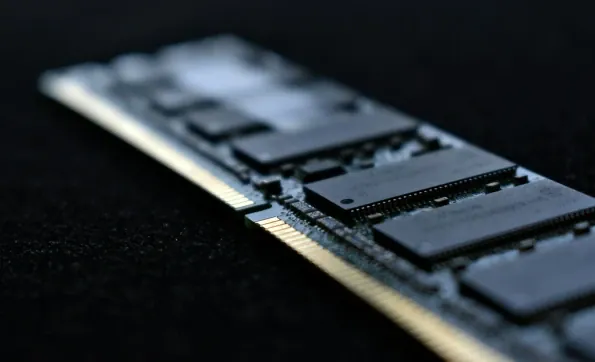In an era where the rapid proliferation of Internet of Things (IoT) devices is transforming industries, the need for robust security measures has never been more urgent. Researchers from Beihang University and Truth Memory Corporation have unveiled a groundbreaking advancement poised to elevate the security standards of these connected devices. A newly developed chip, based on spin-orbit torque magnetic random access memory (SOT-MRAM) technology, integrates a physical unclonable function (PUF) to offer unprecedented security enhancements for IoT.
PUFs and Their Security Advantages
Addressing Security Vulnerabilities
The constraints on cost and inadequate encryption mechanisms in many IoT devices have created significant security vulnerabilities, leaving sensitive data exposed to potential attacks. These issues underline the need for innovative security solutions tailored specifically to the unique challenges posed by IoT. Physical unclonable functions (PUFs) have emerged as a promising solution, offering lightweight yet effective cryptographic security measures. However, traditional PUFs, which rely heavily on CMOS technology, often fall short of expectations due to issues like poor randomness, high power consumption, and susceptibility to environmental changes.
This newly developed SOT-MRAM sr-PUF, fabricated using a 180 nm CMOS process, tackles these challenges head-on, providing a high degree of randomness and reliability. One of the fundamental processes in initializing the PUF involves setting a specific writing voltage. This voltage balances high and low resistance states in the memory array to ensure secure operations. Following this, a computing-in-memory (CIM) approach is utilized to generate responses, producing a 1-bit response by comparing current summations across different column combinations. This sophisticated method enhances the security measures, ensuring the reliable production of random responses.
Performance Metrics and Robustness
The performance metrics of the SOT-MRAM sr-PUF demonstrate its prowess in ensuring secure IoT operations. The chip boasts an impressive challenge-response pair (CRP) capacity of 109, affirming its capability to handle complex security requirements. The uniformity index, which measures the balance between ‘0’s and ‘1’s in the responses, stands at 50.07%, indicating a nearly perfect balance. The diffuseness and uniqueness of the responses hover around 50%, reflecting the chip’s ability to produce highly random and highly distinct responses, ensuring its suitability for cryptographic applications.
One of the standout features of the SOT-MRAM sr-PUF is its resistance to extreme temperature variations. The bit error rate remains at an astounding 0% even at elevated temperatures of 375 K, illustrating the PUF’s robustness and reliability. Such resilience ensures that even under harsh environmental conditions, the chip remains secure and functional. Furthermore, the reconfigurability aspect of the PUF allows for the dynamic refreshment of CRPs by altering write voltages. This feature adds an extra layer of security by diminishing the likelihood of successful side-channel attacks, given the diminished correlation between reconfiguration cycles.
Machine Learning Resistance
Security Against Machine Learning Attacks
The advent of machine learning poses new challenges for IoT security, as these algorithms can potentially be used to predict cryptographic keys and exploit vulnerabilities. To address this concern, the resilience of the SOT-MRAM sr-PUF against machine learning attacks was rigorously tested using three prominent algorithms: logistic regression, support vector machine, and multilayer perceptron. The results were promising, with prediction accuracies constantly nearing the 50% mark, signifying effective resistance to these advanced attack methods.
The predictability attempts focused on decoding the challenge-response pairs, a vital aspect of ensuring the security of IoT devices. Despite numerous trials with different configurations and datasets, the prediction accuracies obtained failed to breach the 50% threshold. This outcome cements the effectiveness of SOT-MRAM sr-PUFs in providing robust security by thwarting machine learning-based intrusions. The inherent randomness and high entropy of responses confound predictive algorithms, significantly enhancing the protection of sensitive data against modern attack strategies.
Enhancing IoT Security
The significance of this development in the IoT landscape cannot be overstated. By incorporating such resilient PUFs, IoT device manufacturers can now offer an elevated level of security previously deemed unattainable with conventional PUFs. The SOT-MRAM sr-PUF technology addresses many existing vulnerabilities, providing a more secure and reliable framework for IoT operations. This newfound resistance to machine learning attacks further solidifies the chip’s position as a next-generation security solution, setting a benchmark for future developments in this domain.
Considering the increasing reliance on interconnected devices and the ever-expanding landscape of IoT applications, the integration of enhanced cryptographic capabilities becomes imperative. Manufacturers now have the tools to build secure systems resilient to both current and emerging threats, ensuring the protection of private and sensitive data. This leap in PUF development heralds a new era of secure IoT infrastructures, paving the way for innovative applications and services.
Conclusion
As the rapid expansion of Internet of Things (IoT) devices continues to transform various industries, the imperative for strong security measures has never been more critical. Addressing this urgent need, researchers from Beihang University and Truth Memory Corporation have announced an innovative breakthrough that promises to elevate security standards for IoT devices. They have developed a cutting-edge chip utilizing spin-orbit torque magnetic random access memory (SOT-MRAM) technology. This advanced chip incorporates a physical unclonable function (PUF), which offers unmatched security improvements for connected devices. The PUF enhances the chip’s ability to protect against unauthorized access and data breaches, making IoT systems more secure and resilient. This innovation is a significant step forward in ensuring that the growing network of IoT devices remains secure and dependable, safeguarding sensitive information and maintaining user trust.













